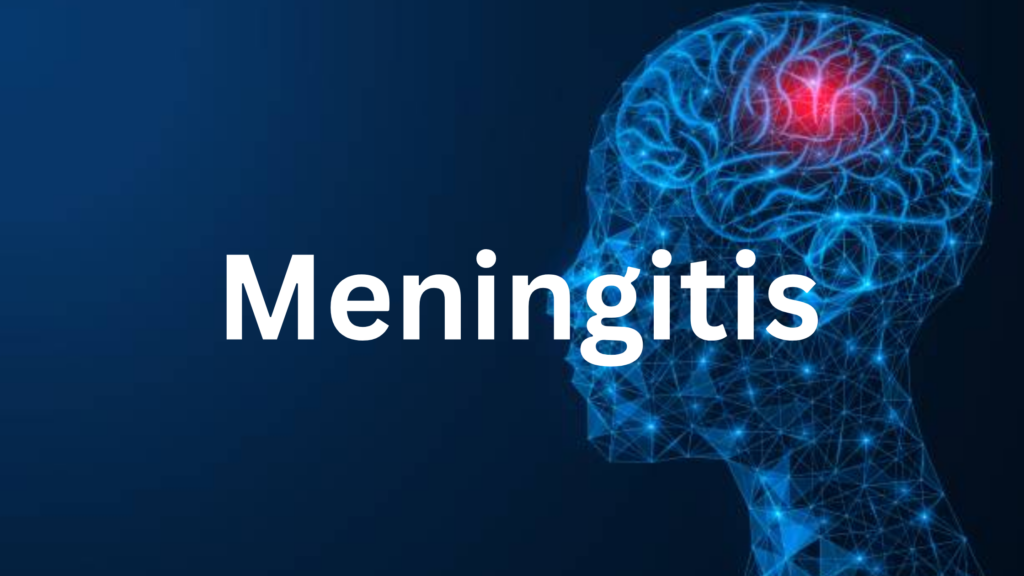What is Meningitis? 🧠🦠
Meningitis is an inflammation of the meninges, the protective membranes covering the brain and spinal cord. It can be caused by bacteria, viruses, fungi, or other microorganisms, and sometimes by non-infectious causes.
Types of Meningitis
- Bacterial Meningitis: Severe and can be life-threatening. Common bacteria include Neisseria meningitidis, Streptococcus pneumoniae, and Haemophilus influenzae.
- Viral Meningitis: Usually less severe and often resolves without specific treatment. Caused by enteroviruses, herpes simplex virus, etc.
- Fungal Meningitis: Rare, usually affects immunocompromised people.
- Other Causes: Parasites, drugs, and autoimmune diseases can also cause meningitis.
How is Meningitis Transmitted?
- Bacterial and viral meningitis often spread through respiratory droplets or close contact 🤧💨
- Some types, like fungal, are acquired from the environment
Symptoms
- High fever 🌡️
- Severe headache 🤕
- Stiff neck (difficulty bending the neck forward)
- Nausea and vomiting 🤢
- Sensitivity to light (photophobia)
- Confusion or difficulty concentrating
- Seizures in severe cases
- In infants: irritability, poor feeding, bulging soft spot on head
Diagnosis
- Clinical examination for symptoms and signs
- Lumbar puncture (spinal tap) to analyze cerebrospinal fluid (CSF) for infection
- Blood tests and imaging if needed
Treatment
- Bacterial Meningitis: Urgent intravenous antibiotics and sometimes corticosteroids
- Viral Meningitis: Mostly supportive care (fluids, pain relief, rest)
- Hospitalization is often required
- Early treatment improves outcomes significantly
Prevention 🛡️
- Vaccines available for Neisseria meningitidis, Streptococcus pneumoniae, and Haemophilus influenzae type b (Hib) 💉
- Avoid close contact with infected individuals
- Good hygiene and respiratory etiquette
- Prophylactic antibiotics for close contacts of bacterial meningitis cases
